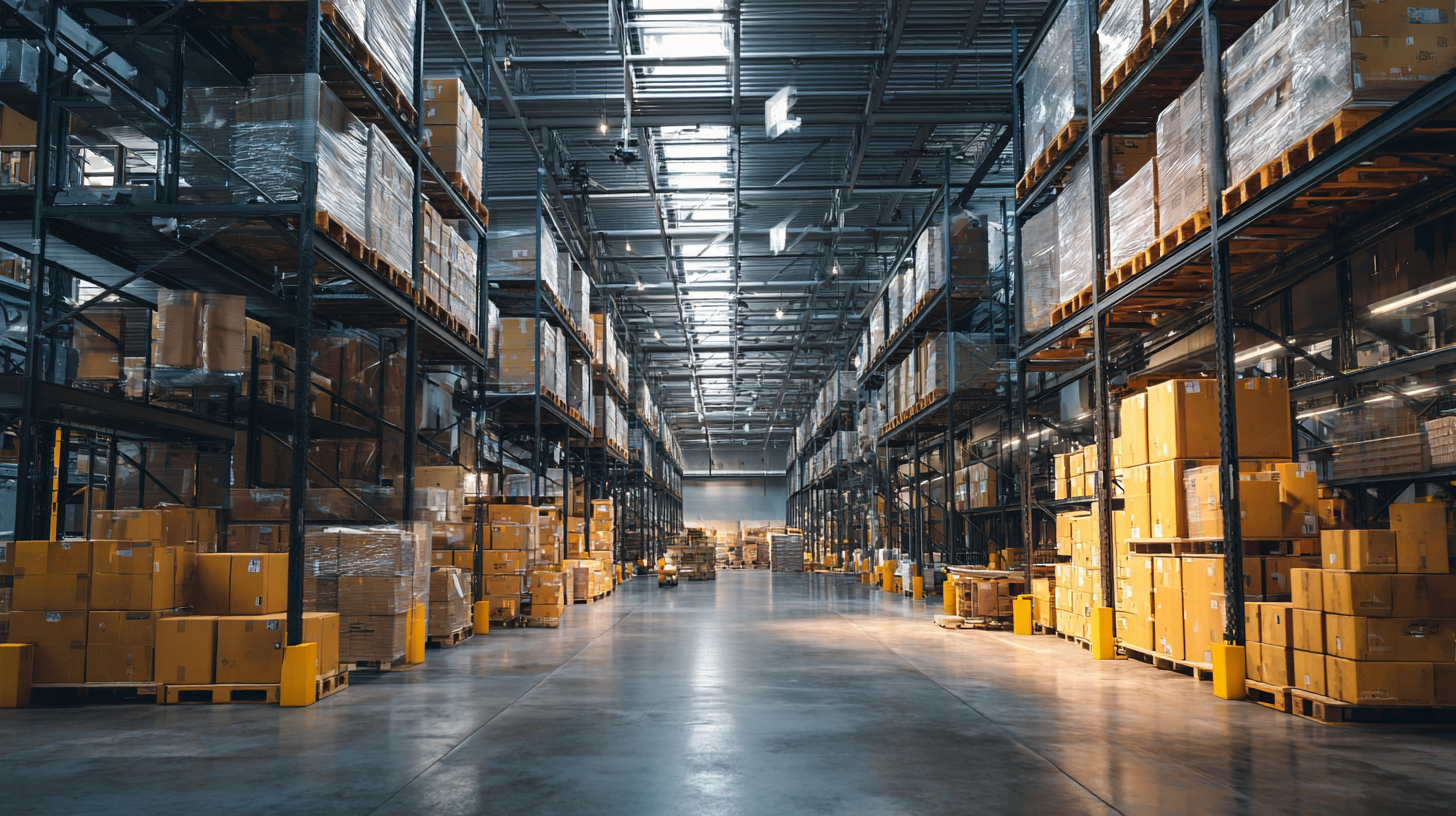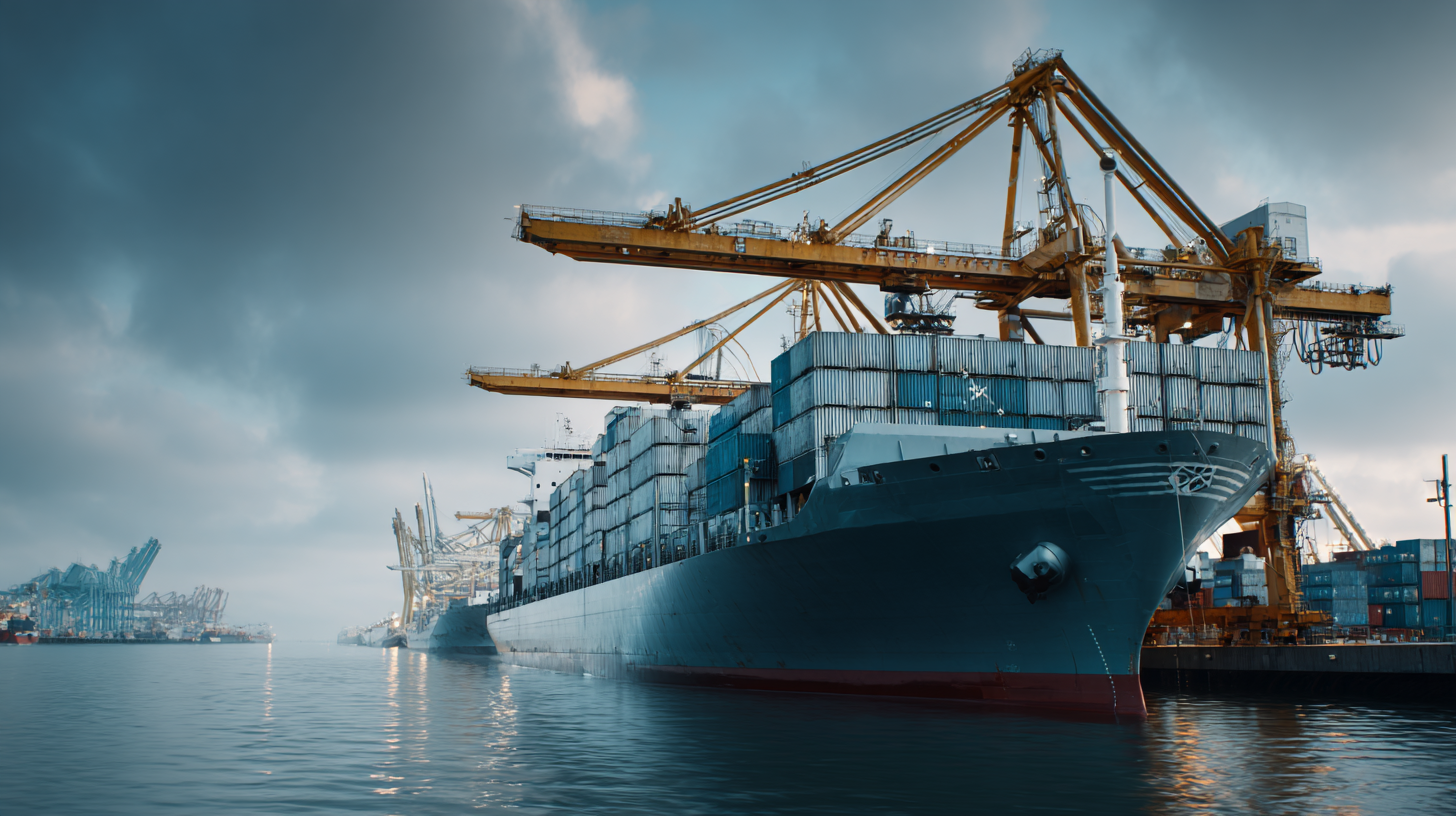In today's global market, the demand for reliable, high-quality products is at an all-time high, with China emerging as a leading player in the manufacturing sector. According to a recent report by the China National Bureau of Statistics, the country's manufacturing output accounted for over 28% of the world's total in 2021, highlighting its pivotal role as a production powerhouse. As international buyers seek efficient procurement processes, the concept of "One-stop solutions" becomes increasingly relevant. These comprehensive services not only streamline sourcing but also ensure quality assurance, timely delivery, and cost-effectiveness. By consolidating various aspects of the supply chain, China positions itself as the premier choice for global businesses looking for trusted partnerships and superior products, marking a significant shift in how the world views Chinese manufacturing.

One-stop solutions have become the cornerstone for global buyers navigating the complex landscape of international trade. These integrated services streamline the process, allowing buyers to source products, manage logistics, and ensure quality control all from a single provider. By reducing the need to liaise with multiple suppliers, buyers can save time and resources, ultimately leading to enhanced efficiency in their operations.

Tip: When seeking one-stop solutions, it’s crucial to select a provider with a strong track record and positive customer reviews. Ensure that they offer comprehensive services that cater specifically to your needs, whether it’s manufacturing, inventory management, or shipping.
Moreover, understanding the nuances of one-stop solutions can greatly benefit buyers in making informed decisions. Different providers may specialize in varied sectors, so it’s essential to align your requirements with the right expertise. A thorough vetting process will not only mitigate risks but also foster a symbiotic relationship that drives mutual growth.
Tip: Establish clear communication channels with your selected provider. Frequent updates and transparent sharing of expectations can help eliminate misunderstandings and foster a more collaborative partnership.
When evaluating quality in Chinese suppliers, buyers should consider several key factors that significantly impact their sourcing decisions. A recent report by the International Trade Centre indicates that 41% of global buyers identify product quality as a critical element when selecting suppliers. This underscores the importance of thorough evaluation processes to ensure that Chinese suppliers meet international standards. Factors such as certifications, quality control processes, and the suppliers' production capabilities play essential roles in this assessment.
**Tip:** Conducting factory audits can help you understand the supplier’s operational standards. Engaging third-party quality assurance companies can provide unbiased evaluations and enhance your confidence in their capabilities.
Furthermore, the evolving landscape of supply chain transparency is crucial. According to a survey by PwC, 74% of companies now prioritize supply chain visibility to mitigate risks associated with quality failures. Buyers should question suppliers about their traceability systems, material sourcing, and compliance with international regulations. This diligence not only fosters trust but helps ensure that the end products are of superior quality.
**Tip:** Request documentation and verification of certifications related to quality standards, such as ISO 9001, to bolster your supplier evaluation process.
This bar chart showcases key factors for evaluating the quality of Chinese suppliers, highlighting product quality, delivery time, customer service, cost competitiveness, and compliance with industry standards, each rated on a scale from 1 to 10.
In today's complex and rapidly evolving supply chain landscape, global buyers must prioritize efficiency to maximize their purchasing power. The impact of recent macroeconomic headwinds and geopolitical challenges has compelled businesses to reassess and innovate their supply chain strategies. For instance, the disruption caused by the COVID-19 pandemic highlighted the need for resilience and collaboration, prompting firms to adopt more networked approaches to meet customer demands swiftly while mitigating risks.
Utilizing advanced technologies such as AI and machine learning can greatly enhance supply chain operations, enabling companies to gain visibility, reduce costs, and optimize decision-making processes. By recognizing and addressing the nuances of modern supply chains, organizations can effectively navigate the uncertainties brought on by tariffs and shifting market dynamics. A strategic emphasis on collaborative supplier relationships will not only improve operational efficiency but also enhance long-term business performance, ensuring that global buyers are well-equipped to thrive in a competitive environment.
Building trust with Chinese manufacturers is essential for global buyers seeking reliable partnerships. As international trade becomes increasingly intertwined, understanding the nuances of working with Chinese firms can mitigate risks and enhance collaboration. Transparency is a crucial element; establishing clear communication channels and expectations helps forge stronger relationships. Engaging in joint ventures or pilot projects can showcase commitment and build trust over time.
Moreover, navigating the complexities of U.S.-China relations requires careful consideration of data security and influence risks. A systematic approach to data management and compliance not only protects businesses but also fosters trust. By focusing on shared goals and sustainable practices, both parties can work towards mutual benefit. This is particularly relevant as global markets evolve and new frameworks for trade emerge, necessitating innovative strategies for partnership in an ever-changing landscape.
| Product Category | Average Lead Time (Days) | Quality Certification | Minimum Order Quantity | Delivery Options |
|---|---|---|---|---|
| Electronics | 30 | ISO 9001 | 100 units | Air, Sea |
| Textiles | 45 | OEKO-TEX | 200 units | Air, Freight |
| Machinery | 60 | CE Marking | 10 units | Sea |
| Toys | 30 | ASTM, EN71 | 500 units | Air, Express |
| Furniture | 90 | FSC | 5 units | Sea, Truck |
In the ever-evolving world of global commerce, many international buyers have turned to China for reliable solutions that meet their diverse needs. One shining example is the experience of a US-based electronics retailer that successfully partnered with a leading Chinese manufacturer. By leveraging advanced production techniques and stringent quality controls, they were able to expand their product offerings while maintaining excellent standards. The retailer's ability to adapt to consumer trends, combined with the manufacturer's commitment to quality, resulted in a thriving business relationship that significantly boosted sales.

Another compelling case comes from a European fashion brand that sought to enhance its supply chain through collaboration with a Chinese sourcing company. Through open communication and transparency, the brand was able to negotiate favorable terms and ensure that ethical practices were upheld throughout the production process. This partnership not only streamlined their operations but also elevated their brand image among eco-conscious consumers. Such success stories highlight the importance of choosing the right partners in China who are dedicated to delivering high-quality products and solutions tailored to the needs of global buyers.
